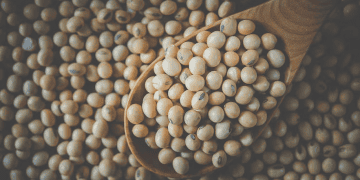The European Union (EU) is considering stricter rules for importing certain agricultural products, including U.S. soybeans. The goal is to make sure that imported items meet the same safety and environmental standards as those produced in the EU, which will help protect local farmers.
A new proposal from the European Commission suggests that the EU would restrict imports of crops treated with pesticides that are banned within the EU. This measure aims to stop harmful substances from entering the market through imports. EU Health Commissioner Olivér Várhelyi highlighted that products containing dangerous chemicals should not be allowed, saying, “If science says it is not safe, then we shouldn’t have it.” For example, paraquat, a herbicide banned in the EU, is still used in the U.S. on crops like soybeans.
The EU’s plan shows a move towards stricter import controls, similar to former U.S. President Donald Trump’s “reciprocal” trade policy. This shift has raised worries about possible trade conflicts between the EU and its trading partners, especially the United States. President Trump has voiced concerns that these new rules could hurt European interests and warned that the U.S. might respond with its own tariffs.
The European Commission is also planning to study how these new import restrictions could affect the EU’s competitiveness and whether they follow World Trade Organization rules. This study will take into account market conditions and where products come from when deciding how to apply the new rules.
This situation comes at a time when there are ongoing talks in the EU about reducing reliance on imported soybeans. Agriculture Commissioner Janusz Wojciechowski has suggested that Europe should gradually decrease soy imports and encourage the growth of local protein crops. This approach aims to shorten supply chains and make the EU’s agriculture more sustainable.
Overall, these proposed import restrictions are part of a wider EU initiative to make sure trade policies align with health and environmental standards, ensuring that imported products do not weaken the EU’s regulations. As the EU moves forward with these plans, it will need to carefully manage its trade relationships and address potential challenges in international trade laws.
Catch the latest in supply chain news on The Supply Chain Report. Visit ADAMftd.com for free international trade tools.
#EUAgriculturePolicy #SoybeanImports #EUSafetyStandards #TradeRegulations #SustainableFarming #PesticideRestrictions #EUTradePolicy #EnvironmentalStandards #AgriculturalImports #FairTrade #FoodSafety #SupplyChainNews #GlobalTrade #WTOCompliance















